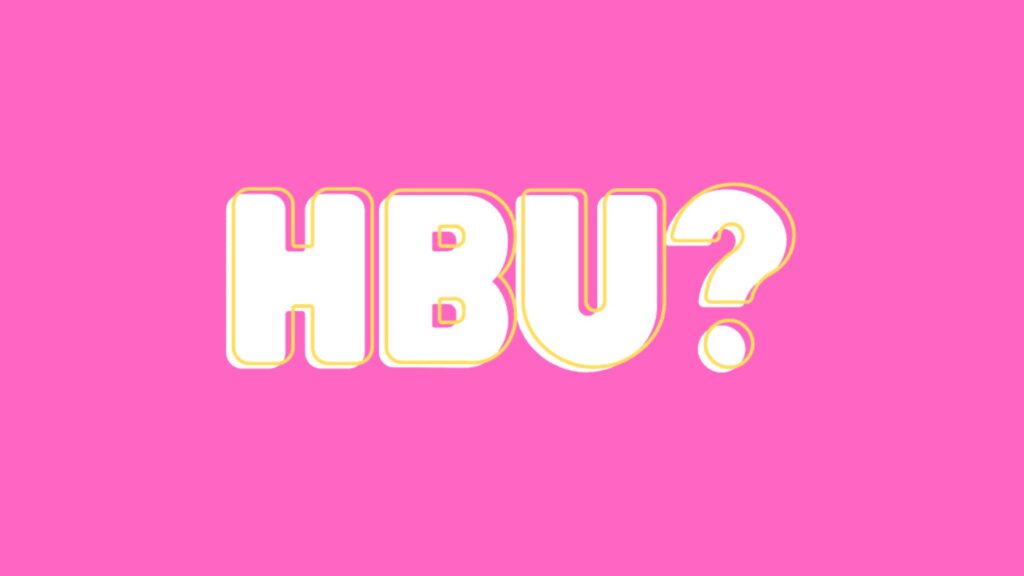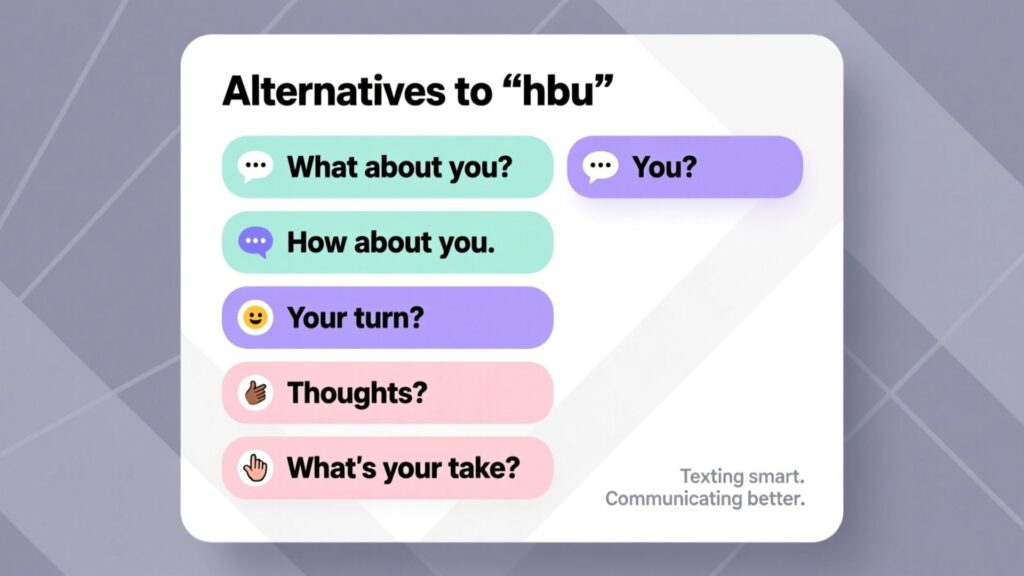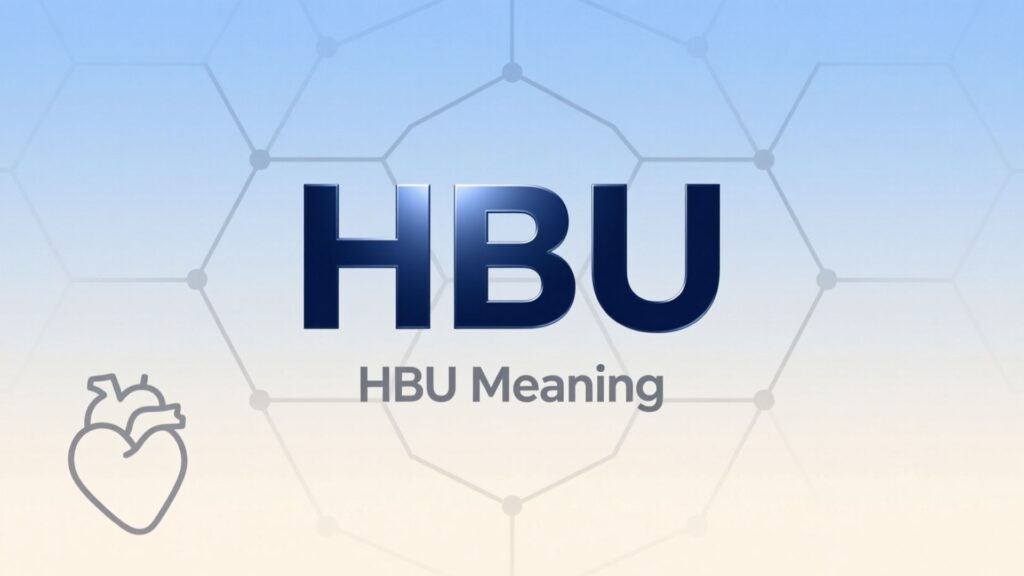Texting has reshaped the way we talk. Abbreviations, shortcuts, and acronyms save time, but they can also confuse people who aren’t used to them. One of the most common is “hbu.” Whether you’ve seen it in a text, on Snapchat, or in a group chat, you’ve probably asked yourself: what does “hbu” mean?
This guide breaks down everything about hbu meaning in text, its origin, why it sometimes feels too casual, and what you can say instead in professional or personal conversations. You’ll also find examples, tone tips, and practical alternatives that fit any situation.
What Does “hbu” Mean?

At its core, hbu means “how about you?” It’s a shorthand way of flipping a question back to the other person.
For example:
- Friend: I’m just watching Netflix, hbu?
- You: Same here, relaxing after work.
You’ll see hbu meaning in chat across texting apps, Snapchat streaks, Instagram DMs, and even in casual workplace messaging. It’s quick, saves effort, and has become part of everyday digital language.
A few things to note:
- It’s almost always written in lowercase: hbu
- In uppercase (HBU), people may think you’re shouting or using it as an acronym for something else (like Houston Baptist University)
- It works best in casual settings with people you know well
So, when people ask, “what does hbu mean in texting?” or “what does hbu mean on Snapchat?” the answer is simple: it’s just a short, casual way to say “how about you?”
The Origins of “hbu”
Texting shortcuts started in the early 2000s, when SMS messages were limited to 160 characters. People wanted to pack more into less space, and phrases like “brb,” “idk,” and “hbu” were born.
- SMS Culture: In the flip phone era, typing “how about you?” took multiple key presses. Shortcuts like “hbu” made texting faster.
- Chatrooms & Forums: Online communities like AIM, MSN Messenger, and early forums helped spread these abbreviations.
- Social Media Boom: Platforms like Twitter, with character limits, normalized abbreviations like “hbu.”
- Snapchat & Instagram: These apps cemented abbreviations into youth culture, where speed and brevity matter most.
Today, you’ll still find people using “hbu” in text messages, but it’s also widely used in chats, memes, and casual comments online.
Why “hbu” Can Feel Too Informal
While “hbu” is common, it doesn’t always work in every setting. Here’s why:
- Professional Settings: Using “hbu” in an email to your boss or a work Slack channel can feel unprofessional.
- Cross-Generational Gaps: Older adults who didn’t grow up with text slang may misunderstand it.
- Tone Risks: A short “hbu” can sound dismissive or rushed if the other person expects a warmer response.
For example, compare:
- “I’m good, hbu?” (friendly, casual)
- “I’m good, how are you doing?” (warmer, more thoughtful)
Both ask the same thing, but the tone feels different.
Alternatives to “hbu”

If you want to switch things up or sound more polished, here are alternatives sorted by tone.
Polite / Formal Alternatives
Use these when writing emails, networking, or talking to someone you don’t know well:
- “And how about you?”
- “What about yourself?”
- “How are things on your end?”
- “How have you been?”
Neutral / Everyday Alternatives
Perfect for friends, family, or everyday chat:
- “What about you?”
- “And you?”
- “Your turn?”
- “Same for you?”
Casual / Colloquial Alternatives
Great for texting close friends or chatting on Snapchat:
- “Sup with you?”
- “You good?”
- “Whatcha up to?”
- “How’s life treating you?”
Choosing the Right Alternative
How do you know which one to use? Think about three factors:
| Factor | When to Use “hbu” | When to Use Alternatives |
|---|---|---|
| Tone of Situation | Casual text, DM | Work email, professional chat |
| Relationship | Friends, peers | Manager, client, older family |
| Clarity | Informal chats | Cross-cultural or formal communication |
Rule of thumb: Use hbu only with people you’d normally text casually. For professional or formal contexts, pick a longer alternative.
Real-World Examples in Conversation
Here are some everyday examples showing how tone changes:
- Friend Texting:
- I’m making pizza tonight, hbu?
- Translation: What are you up to?
- Snapchat Streaks:
- Chilling at the park rn, hbu?
- Translation: I’m outside, what about you?
- Work Chat (too casual):
- I’m free after 2 pm, hbu?
- Could feel unprofessional. Better: I’m available after 2 pm, what about you?
- Family Group Chat:
- We’re leaving now, hbu?
- Translation: Are you ready too?
Nuances of Tone & Subtext
Tone is everything. Depending on how you type “hbu,” it can send different signals:
- “hbu” – neutral, everyday
- “HBU?” – louder, may look impatient
- “hbu??” – curious, pressing for an answer
- “hbu lol” – lighthearted, playful
Cultural background and age also matter. A 20-year-old might see “hbu” as friendly, while someone older may think it looks lazy or careless.
Why Variety Matters
Repeating the same phrase makes conversations dull. Switching between “hbu,” “what about you,” or “how’s life treating you” keeps the exchange natural.
Variety helps you:
- Sound more engaged
- Adapt to different people
- Avoid misunderstandings
Imagine always replying with “hbu” in every chat. It can start to feel robotic. Variety makes you sound more thoughtful.
Tips for Using “hbu” and Its Alternatives
Here are quick tips to keep your messages clear and polite:
- Match the platform: “hbu” is fine on Snapchat, but in LinkedIn messages, it’s too informal.
- Think about the audience: Use slang with peers, but avoid it with clients.
- Balance brevity with warmth: Add a smiley or extra words if you don’t want to sound cold.
- Avoid overuse: Mix in alternatives to keep conversations lively.
Common Pitfalls to Avoid
Even though “hbu” is simple, people misuse it. Watch out for:
- Using it in formal situations like job interviews or official emails.
- Over-relying on it so you sound repetitive.
- Sending it to someone who doesn’t understand internet shorthand.
- Forgetting tone “hbu” without context can sound dismissive.
FAQs
Is “hbu” rude?
No, but it can feel curt in formal settings.
Is it okay to use “hbu” at work?
Only in casual workplace chats with close colleagues. For emails or professional contexts, stick to full phrases.
Do people still use “hbu” in 2025?
Yes. While newer slang keeps popping up, “hbu” remains a staple in texting culture.
What does hbu mean on Snapchat?
It means the same thing as in texts: “how about you?” It’s often used in streaks or casual chat.
What does hbu mean in texting?
It’s shorthand for “how about you?” and is most common in everyday text exchanges.
Conclusion
The hbu meaning in text is simple: how about you? But context changes everything. While it works fine in Snapchat streaks or casual chats, it can feel out of place in professional or formal settings.
That’s why knowing polite alternatives matters. From “what about yourself?” in an email to “sup with you?” in a group chat, you can adapt your language to fit the moment.
The takeaway? Use hbu sparingly, choose alternatives when needed, and always think about your relationship with the person you’re talking to. That way, your conversations will sound more natural, polite, and engaging.
Bugti is the founder of Quoethint.com, a hub for English language tips, writing advice, and grammar guidance. With years of experience in English studies and a passion for clear communication, Bugti created this platform to make grammar and writing easy to understand for everyone.
